
“Patience is bitter, but its fruit is sweet.”
–Jean-Jacques Rousseau
Henrik ‘Froggen’ Hansen is arguably the greatest Western League of Legends player in history. Once the best player in the world, Froggen’s focus on controlled laning to consistently out-farm the opposing Mid laner and then arrive at team-fights in position to output reliable damage changed the way the Mid lane was played. A master of pressure-laning, Froggen has made his name and career off harassing the opposing laner to ensure he gets the farm he needs to be a deciding factor in the outcome of the game for his team.
Competing in his fifth season, four years after breaking into the elite tier of players, Froggen remains a consistent performer and holds his own against the best in his region. Froggen is the star behind the first defeat suffered by Moscow Five, the then imperious world number one team; a World Championship semi-finalist; an OGN Champions finalist; an EU LCS champion and one of the game’s greatest players.
A strange new bird hatches
Froggen arrived at the level of the competitive scene in the pre-season of Season 2, late 2011. The Danish teenager had gotten into League of Legends by watching his brother play the champion Anivia a lot, inspiring him to do the same and quickly become known as not just an Anivia main, but someone who almost exclusively played the champion. The young Froggen could be seen playing online cups like Go4LoLs with amateur level teams and locking in the ice bird with a curious regularity.

Froggen would find his way to playing with Wickd, then one of the world’s elite Top laners and previously of SK Gaming, one of the best European sides. The two went through a number of different team-mates, but it was clear their solo lane strength was agreed to be the foundation for the team they would build. Getting in Snoopeh, Yellowpete and Krepo to fill the other roles, the team which would become known as CLG.EU was set. While waiting months for their first chances to compete at the big European LANs, the team competed, as all the top teams did back then, in online competitions, and quickly established themselves as both one of the best European teams and one of the few legitimate threats to Moscow Five’s crown.
M5 had stomped the first two IEM events they had attended, with one being the World Championship and essentially the most competitive and stacked event held in LoL history to that point. When M5 lost online games, it was easy to point to their higher ping, playing from Russia, or the less serious nature of competing in many online cups on a weekly basis. Their losses to CLG.EU were different, though, as they were being directly outplayed in a number of the games and the play of Froggen saw Alex Ich, the carry of M5, no longer able to snowball games and ravage team-fights.
Soaring above the meta
To appreciate the impact of Froggen’s approach to playing the Mid lane one needs to consider the context of the meta-game upon his arrival. The best Mid laners at the time were players like Alex Ich, Reginald, Ocelote and bigfatlp. Most of these were hyper aggressive in their approach to fighting, abusing level up advantages to all-in the opposing Mid laner or calling the Jungler over again and again to dive their opposing number. At the time, the best Mid laners often sought to snowball the Mid lane through kills.
Froggen arrived and immediately set about implementing his farming-orientated style. The Danish youth eschewed the gamble nature of attempting all-in solo kills and instead would focus upon farming as well as possible, all the while harassing his opponent away from their farm and ensuring he created the space from which to maxmise his own numbers. While this style can be seen to be an artefact of the CLG.EU star’s obsession with Anivia, it extends beyond that champion and into the entire philosophy underlying Froggen’s approach to the Mid lane.
“Your life is worth much more than gold”
–Bob Marley
Froggen’s realisation, consciously or otherwise, was that by out-farming the opposing Mid laner, while not dying, he would arrive at the Mid-to-late-game with an advantage, the items he needed to deal significant damage and an edge in team-fights, assuming he had drafted his champion accordingly. The gold gained from around 15 creeps killed was equivalent to the gold earned from a kill, meaning that if a player was good enough at this style, then he could essentially gain the gold he otherwise might have from solo kills, but without suffering the risk involved in attempting to acquire those kills.
 Of course, not every player was as capable of executing such a style as Froggen, who implemented it to accrue such advantages with an almost inevitable reliability. While the other top Mids accepted the risk of their snowball style of play, seeing games go massively in their favour or the opponent’s, Froggen’s approach had him time and time again gaining edges to arrive at team-fights ready to output more damage than the opposing Mid.
Of course, not every player was as capable of executing such a style as Froggen, who implemented it to accrue such advantages with an almost inevitable reliability. While the other top Mids accepted the risk of their snowball style of play, seeing games go massively in their favour or the opponent’s, Froggen’s approach had him time and time again gaining edges to arrive at team-fights ready to output more damage than the opposing Mid.
CLG.EU’s success, winning Dreamhack Summer 2012 and placing highly in numerous top tournaments, stemmed in part from the way the team played around Froggen’s approach. Wickd was more aggressive in his laning, but the enemy could not simply send their Jungler to gank him all the time, else they would leave Froggen free to punish their Mid laner and farm up for the fearsome CLG.EU late-game team-fights. Still, ganking Froggen proved largely fruitless, as he was one of the most difficult Mid laners to successfully pick off, earning a reputation for being practically “ungankable”, in as much as such is possible.
“Froggen [is close to ungankable] I don’t know how he does that […] he just knows where the Jungler is, he just knows how to play to not get ganked, he just knows how to play to kill one versus one and get out when the Jungler comes”
–Jankos, former star Jungler of ROCCAT and currently of H2k (OnGamers, 2014)
Snoopeh was one of the best supportive style Junglers in the world and roamed around the map farming and then counter-ganking, keeping his lanes safe. The CLG.EU botlane of yellowpete and Krepo understood that they did not need to take any risk, playing conservatively and arriving at team-fights in position to have an impact. When CLG.EU arrived at the late-game, as they so often would, Froggen was the highest impact carry in the entire world and would frequently dominate the affair and see CLG.EU secure victory.
Froggen’s laning style not only allowed him to gain advantages for himself and play into his strengths, which could be seen on display in his heavy damage output team-fighting, but also helped neutralise the impact of the other Mid laners. Season 2 boasted some of the best and most dangerous Mid laners in the game’s history, even considering the modern day, as the likes of Alex Ich, Ambition, Toyz, Misaya and Rapidstar put together highlight clips on a regular basis with their performances. Putting these Mid laners in a position of being under-farmed, relative to Froggen, or having to play without the accelerated pace of having more items sooner or come set team-fights, threw many of them off and kept them from ravishing the Dane’s team-mates.
It’s naive to imagine Froggen simply sat hugging his tower and farmed well, for such play would not allow him to consistently out-farm opponents and ignores the focus he placed upon safely pressuring the other Mid laner and disrupting their own farming, sometimes even forcing them out of lane entire, making them base for health and thus denying them more farm.
Leaving the nest
 Froggen’s early success and affinity for Anivia quickly made his name synonymous with the champion, yet it’s key to appreciate that it was never considered a strong or broken meta pick. A few others did attempt to play it, notably Toyz and Rapidstar, but rarely with anywhere close to the proficiency of Froggen, who remained the master of the champion. Outside of the bird, Froggen stuck with a firm pool of champions like Karthus, Ahri and Morgana. On Kathus he would deliver a monster performance at the Season 2 World Championship, leading his team to within a game of the final.
Froggen’s early success and affinity for Anivia quickly made his name synonymous with the champion, yet it’s key to appreciate that it was never considered a strong or broken meta pick. A few others did attempt to play it, notably Toyz and Rapidstar, but rarely with anywhere close to the proficiency of Froggen, who remained the master of the champion. Outside of the bird, Froggen stuck with a firm pool of champions like Karthus, Ahri and Morgana. On Kathus he would deliver a monster performance at the Season 2 World Championship, leading his team to within a game of the final.
On Ahri, Froggen can be considered one of the best players in history, despite often being considered, in the public’s consensus perception, as someone who steers clear of assassins. Froggen’s Ahri saw him frequently picking off opponents for kills and then roaming the map to secure more, contrary to notions of him sitting in the Mid lane and only killing creeps every game.
As Season 2 went on and led into the pre-Season for Season 3, Froggen began to display more and more pocket picks which he was able to make work with an impressive consistency. Back in April of 2012, at CLG.EU’s first LAN (Gamers Assembly), he had showcased Lee Sin as a Mid lane champion. Late in the year, notably around Lone Star Clash 2, Froggen would put together some incredible Lee Sin games, dominating top Western level competition.
Likewise, AP Kog’Maw as a Mid laner was another of Froggen’s contributions, dominating with the champion around the same period of time, including the MLG Fall Championship event and some famous games against TSM, then the best North American team. Joining those two picks was Lux, which allowed Froggen to pick up some stunning kills from seemingly half way across the map.
A most magnificent creature
Froggen was arguably the best player in the world over Season 2. He was the clear stand-out star of CLG.EU, accomplishing much with them. They won Dreamhack Summer 2012 undefeated, beating Moscow Five in all three games they played there, with the final being a clean sweep, at a time when M5 were the best team in the world. The first season of OGN Champions, the premiere Korean tournament, had seen the Western teams humiliated and unable to progress past even the quarter-finals, the same story played out in the Summer split, with the exception of CLG.EU, who would make a run all the way to the final.

In the final, they played Azubu Frost, the best Korean team and one which will go down in history of one of the best teams to ever compete in LoL. CLG.EU were able to win the first two games, but saw themselves reverse swept and the title denied them. In the first game of the series, Froggen played Diana, a champion which had not been a part of his pool and which he had merely been playfully testing in solo queue. Picking that champion and winning with it set the tone that CLG.EU were not afraid of the Koreans in the manner many Westernes had become. Late in the series, as Frost secured the wins they needed to snatch the trophy away, Froggen remained one of the few bright spots for CLG.EU, battling hard to keep his team in the game and focused heavily by the Korean side.
Wickd’s collapse in the Top lane had been a core reason for the series turning, with Frost Top laner Shy beginning to establish his own legend. Elsewhere, some famous slip-ups by the bot lane and Jungler with regards to key buffs cost the team a chance at LoL immortality as the only Western team to ever win an OGN Champions season. For Froggen to be a candidate for the MVP of the finals, despite losing, highlights the extent to which he was playing above and beyond most players in the world at the time.
When the Westerners had gone to Korea to live and practice there, most had been shocked to discover they could not climb high on the solo queue ladder, as they were accustomed to back in their native regions. Froggen had no such problems, breaking a high Elo mark and establishing his legitimacy amongst even the best Korean players. Indeed, Frost even invited him to play ranked five games with them in their spare time.
At the Season 2 World Championship, Froggen helped CLG.EU survive the scare of World Elite, whose new line-up pushed his team to their limit and would go on to seize the mantle of the world’s best team a few months later, in the quarter-finals. In the semi-final CLG.EU rematched Frost and against lost in heart-breaking fashion, again taking the lead in the series and again seeing it overtaken by the Koreans.
When considering Froggen’s dominance in Season 2, some may point to the lack of trophies accumulated during his prime. In team sports, determining a player’s greatness is not as simple as comparing his team success to that of others, being as such success depends upon more than merely his efforts, no matter how great they may be. This is a topic which has surfaced again and again during Froggen’s career and will be addressed later, in the context of his whole career.
CLG.EU were able to compete with essentially any team they faced and a large reason for that was the play and advantages they gained from the Mid lane approach of Froggen. During periods of time when M5, Frost and WE could all be considered the best teams in the world, Froggen ensured CLG.EU was right there with them and contesting victories in the games they played. Some may not know that prior to the Season 2 World Championship, CLG.EU attended the Reginal qualifier for Taiwan, Hong Kong, and Macau. There, CLG.EU played a show-match against Taipei Assassins (TPA), the side which would go on to surprisingly become the champions at the upcoming World Championship. The result? A victory for Froggen and CLG.EU.
CLG.EU were the only top team in Season 2 which had no hard counter or opponent which served as a Kryptonite for them and convincingly beat them. Having the best player in the world, at the most significant carry position and with an approach which reliably gains advantages certainly helped manifest that reality.

Season 3 – Things falling apart
The pre-season for Season 3 saw CLG.EU gradually slide down the rankings, moving further and further away from championship contention, both domestically and internationally. A key problem was that Snoopeh’s game no longer fit a meta which was now moving away from supportive style Junglers, coupled with the Scot frequently traveling to help secure CLG.EU’s next contract, which would end up being with Evil Geniuses for Season 3.
Yellowpete had never been a monster ADC, instead playing a sensible and safe game which allowed him to output a good amount of damage in team-fights, as Season 2 had seen ADCs particularly strong in that regard. Season 3 saw ADCs set back by nerfs and so the botlane of EG became a significantly less effective. These set-backs meant EG could often not even reach the late-game they had built their names off the previous season, dying outright earlier in the game or being picked apart by the split-pushing style of teams like FNATIC.
EG still attempted to play the CLG.EU late-game style, but waiting for team-fights was no longer the meta-game of the game and they were punished heavily for being unable to adapt to a world in which the new FNATIC line-up and the legendary Moscow Five line-up (now Gambit) thrived.
“I wouldn’t even say I’m in a slump. People just sit around mid or avoid laning against me if they don’t have the better matchup which I’m equal farming against. I’m playing just as good as before we are just too passive which is a problem for all on our team”
–Froggen (Reddit, March 2013)
This problem in an overly passive playing style for the team and most of his team-mates falling far from the effective levels of 2012 saw Froggen placed in a difficult predicament, essentially the only world class player left on EG. The team would battle back to reach the semi-final of the first EU LCS split, losing there 1:2 to FNATIC, who went on to become the first European LCS champions.
Froggen’s toil to find champions he could still win games for his team on saw him continuing to expand his champion pool, to the extent that he played a total of 14 champions of the regular portion of the EU LCS Spring split and play-offs, winning games on eight of them.

Summer of the assassins
Finishing in third place in the Spring split had seen EG regain some of their legitimacy as a top European side, but they still had shown some near fatal weaknesses in contract to the teams who had finished ahead of them. The Summer split would be even worse for the former CLG.EU. Early on they fell behind disastrously, needing the help of former FNATIC Support nRated to help change their mentality to one of a team which could succeed in the early game.
The stars of the Summer split in Europe were the Mid laners, as the increased strength of assassin champions saw the likes of xPeke, Alex Ich, Bjergsen and Nukeduck winning games for their teams seemingly single-handedly. These Mid lane stars would get rolling early in the game on an assassin champion, sometimes not even against the opposing Mid laner, and then roam around the map collecting the most farm and snowballing the game off repeated kills against any and all members of the opposing team.
With the game seemingly throw back over a year, in terms of the prevailing approach to the Mid laner, to the world Froggen had arrived into in early Season 2, it is unsurprisingly his impact would not be as great in terms of securing wins for his team. It is, however, a misconception that Froggen could not and did not play assassins well during that split. Back during the Spring split, he had remained loyal to champions like Anivia and Lux, playing almost half the split on those two champions, but in the Summer he embraced a number of assassin picks. Froggen would play assassins in 17 of the 28 games in the regular portion of that split. What’s more, he found success on a majority of those occasions.
Froggen’s Kassadin proved to be strong in a number of games, even those his team did not win. Against Gambit he played with teleport and finished with a 10/0/6 scoreline and more than 3,000 gold advantage over anyone else. His Ahri downed Lemondogs and SK Gaming, the latter being a 5/1/6 performance, again with the most gold. MYM had started the split strong, but a Jayce pick against them saw Froggen smash then 8/1/5. FNATIC would end up finishing second in the regular portion and winning the split, but Froggen played a monster Twisted Fate game against them late in the split to secure an EG win.
Statistically, Froggen finished the split with incredible numbers to boast of:
Highest Gold-Per-Minute out of players in the top 12 for KDA
Most kills out of players in the top 12 for KDA
Highest KDA in mid lane
 In the play-offs, EG reached the semi-final, with Froggen closing a deciding third game in the quarter-final against Alternate with a vintage 7/1/11 Ahri performance against the team which had once led the split. The semi-final would be a match-up with FNATIC, who had come on strong late in the split and finished in second overall, thanks to a four-way tie play-off they had won. This was the FNATIC of sOAZ and xPeke, both fearsome solo laners and in contention for the best in the West in their roles.
In the play-offs, EG reached the semi-final, with Froggen closing a deciding third game in the quarter-final against Alternate with a vintage 7/1/11 Ahri performance against the team which had once led the split. The semi-final would be a match-up with FNATIC, who had come on strong late in the split and finished in second overall, thanks to a four-way tie play-off they had won. This was the FNATIC of sOAZ and xPeke, both fearsome solo laners and in contention for the best in the West in their roles.
FNATIC would sweep the semi-final, despite Froggen’s superlative 11/3/2 Fizz outing, participating in all but one of EG’s kills that game. 12 deaths from the EG botlane told the story of the challenge facing Froggen that season. The third place decider for the split would determine whether EG went to the World Championship again or not. The first game saw a powerful 7/0/12 Orianna performance from the Danish Mid, but ill-advised Zyra picks in the second and third had him struggle to exhibit the same kind of impact and EG fell short of Worlds.
Over the Summer split and play-offs, Froggen played 17 champions and won games on 11 of those picks. The only Mid lane star to best that number was Alex Ich, who won games on 12 champions. Bjergsen had wins on 10 and Nukeduck and xPeke were sat on nine.
Froggen vs. the world
Looking back on Froggen’s performance over Season 3, his team’s success was mediocre, in contrast to past years, but his individual performance showed a level of excellence and highlighted that he was still one of the best Western Mid laners. Where Season 2 had seen him sticking to a smaller pool of champions, he had expanded over the two LCS splits to pick more champions in an attempt to gain an edge for his team and give them something powerful in the meta at the time, as his numbers in the Summer on the assassins show. It would become a hallmark of Froggen’s game to play a wide champion pool and pick for specific match-up, rather than showing mastery of a few champions as he had during his break-out season.
Part of the problem for Froggen in Season 3 was that his team was handicapped by the downfall of the other members of the team. Even Wickd had become a liability and was no longer a reliable solo lane threat. Games were now more than ever upon the back of Froggen and even a good performance from his could not guarantee a victory.
This problem with the balance of responsibility for victory in the team made it even more difficult for Froggen to play as aggressively and as riskily as the other Mid lane stars did, as if he lost lane and fed kills then EG’s chances of winning the game were effectively killed. In contrast, xPeke still had sOAZ to rely upon, Bjergsen had help in the form of extinkt and Freeze, Alex Ich still had the monster team-fighting of Gambit and Nukeduck had the emergent Zorozero and a team which rarely lost any lanes.
What’s more, it was rarely a one-versus-one match-up which saw those assassin champions get rolling, as Froggen’s laning strengths and excellent risk-assessment meant they would rarely be able to solo kill him and get going. Instead, they would roam around the map and pick off his weaker team-mates and snowball the game that way, while Froggen sought to win lane, get kills where he could and arrive at the team-fighting phase in a position to stil have an impact on the result. As such, the weaknesses of Froggen’s team-mate could make his own challenge of carrying even greater in such a meta.
The EU LCS Summer split of S3 was arguably the most stacked LCS split in history and Froggen’s team was one of the weakest line-ups competing for the title, in terms of both performance level man-for-man and the team’s overall style of play, yet he had then contending for second place in the regular portion of the split and then a game away from representing Europe at the World Championship. When we speak of hard carry performances, Froggen’s Season 3 should be noted as an example of one man toiling away and coming close to succeeding in spite of numerous disadvantages outside of his control.

Season 4 – New challenges
After Evil Geniuses had failed to qualify for the World Championship, Froggen set about building a new team around his position. Three of his former team-mates would take the EG name over to North America and compete in the NA LCS, falling into relegations both splits. Back in Europe, Froggen began playing with a number of different players, looking for the team-mates which would become Alliance. The core of the team was set in place late in 2013 and had begun well enough, convincingly beating down Team dignitas at the Battle of the Atlantic.
The off-season had not seen Froggen beaten down by being unable to display his skills at the World Championship, as he streamed and continued to put in many hours to practicing and playing the game. A core component of Froggen’s career has been his sustained passion for League of Legends as a game beyond merely being a vehicle for his talent and a career. While others take their vacations and play other games, he has routinely played the game for fun and “off the clock”, as it were.
“On the other hand, there’s Froggen who wants to play and improve constantly and doesn’t care about other games. When he relaxes, he does so with LoL. I don’t have to worry about whether or not he’s in shape and bringing his A-game. He always will, because it’s the only thing he focuses on outside of his social life. I suspect that he dreams as much about League as he does girls.”
–Maelk, owner of Alliance (Reddit, December 2014)
Expectations were high for Alliance, not just because the line-up had been nicknamed “Froggen’s Super-team”, but because rumours were circulating that the team was dominant in practice games. As such, Alliance were expected to be a contender for the title and FNATIC’s throne. The first week of play, accordingly, brought a massive shock for everyone, as Alliance lost all four of their first week’s games. There was even a loss to SHC, who had been considered unlikely to even qualify for LCS. Starting out their LCS campaign bottom of the table, Alliance faced a hard battle to overcome the disappointment of falling so short of the high expectation which had been surrounding them.
Over the next six weeks of play, Alliance would remain a bottom three team for the majority of the time, but their play did improve and they managed a 50% win-rate over that six week span. The problem was that their 10 total losses, to six wins, had them ranked seventh out of eight headed into week eight. One of their last losses had even come against Millenium, the team ranked below them in last place. Many wondered if Alliance were set to become one of the greatest failures in LoL history.
 Week eight would be the moment it all turned around for Alliance, they went 4:0 in that super-week and set out on what would become an eight game winning streak, the best in the league. At the end of the regular split, that run had become 10 wins out of their last 12 games, seeing them head into the play-offs as the third seed. Froggen received two weekly MVP awards and was named the overall MVP of the league for the Spring split.
Week eight would be the moment it all turned around for Alliance, they went 4:0 in that super-week and set out on what would become an eight game winning streak, the best in the league. At the end of the regular split, that run had become 10 wins out of their last 12 games, seeing them head into the play-offs as the third seed. Froggen received two weekly MVP awards and was named the overall MVP of the league for the Spring split.
In the play-offs, Alliance would have a little difficulty against FORG1VEN’s Copenhagen Wolves but reach a familiar place for Froggen: a semi-final against FNATIC. Facing the same core opponent in the same spot for the third straight split, Froggen put on an even more inspired performance than the previous year’s. The league’s MVP was the best player in the server and battled hard to try and drag his team to the final, as a number of players seemed to choke under the pressure of the big game, notably the ADC Tabzz struggling to have a similar impact to that he had managed during the regular portion of the split. Alliance would lose the third place match to ROCCAT and finish fourth overall.
Froggen played 13 champions over the Spring split regular portion and play-offs, securing wins on 11. Despite his team’s collapse in the play-offs, he was once more in serious contention as the West’s best LoL player.
The Champion of Europe at last
Alliance began the Summer split much as they had finished the regular portion of the previous split, winning the majority of their games and looking like the best team in the league. The problems of the play-offs were left behind them and they would deliver the most dominant EU LCS split campaign in history, to that point in time. Froggen’s men led the league from the first week to the last and would finish with a 21:7 record. Not only was their overall win-rate 75%, but they had won three of the four games they had played against the other teams in the league, ensuring they had a 75% win-rate against every single team.
 Froggen was experiencing a second prime, both in terms of raw individual performance and the impact he could have upon his team’s chances to succeed. He had even brought out Anivia again, long removed from being anything close to a meta champion, and been able to win games on the old ice bird. Froggen could seemingly do whatever he pleased and find success in doing so. Over the totality of the split, including the play-offs, he would play 15 different champions and win games on all but one. No player in the West was as complete or as consistent in high level performance.
Froggen was experiencing a second prime, both in terms of raw individual performance and the impact he could have upon his team’s chances to succeed. He had even brought out Anivia again, long removed from being anything close to a meta champion, and been able to win games on the old ice bird. Froggen could seemingly do whatever he pleased and find success in doing so. Over the totality of the split, including the play-offs, he would play 15 different champions and win games on all but one. No player in the West was as complete or as consistent in high level performance.
“To me, Froggen is better than Bjergsen, because he knows way more about the game. In addition, he has brought a whole new level of consistency to the table, something which Bjerg has not.”
–Febiven, then Mid laner of H2k and now Mid lane star of FNATIC (OnGamers, August 2014)
In the play-offs of the Summer split, Alliance came in with the number one seed and a winnig record against every team, as previously noted, leading many to conclude they would roll over the competition with ease. In fact, their first opponent, SK Gaming in the semi-final, would provide their toughest test. Again, Froggen found his team falling from the level they had ended the group stage portion of the split at and some of his team-mates failing both in lane and at key points in team-fights. It would fall upon his shoulders to hard carry some notable team-fights and stay alive to be the consistant damage threat. Despite a few nervous early games, Froggen did just that and willed his team into his first LCS split final.
In the final, the opponent would be FNATIC, a core which had won all three of the previous LCS splits and was now about to play in their fourth. xPeke’s side featured Rekkles, who had been given the MVP for the split, despite Froggen’s otherworldly performance. The final would see Alliance winning 3:1 to take the title, Froggen again leading the way as the best player in the server. The play-off run had seen Froggen proving a dominant force on Ahri and Fizz, again highlighting misconceptions that he could not play assassins effectively and also winning big games on Tristana. Alliance won both of their play-off series 3:1, meaning they finished the entire split campaign with a 75% win-rate against every opponent in the league. The West’s best player had put together one of the greatest individual and team performances in the history of the LCS.

The disappointing Worlds
Alliance arrived at the Season 4 World Championship as a team expected to have chances to progress to the play-off stage. In a group with Cloud9 and NaJin White Shield, they would face on the one hand the Western team with the best shot-calling (C9) and a Korean team which had famously strong solo laners (NJWS). Alliance would split their group stage games against those opponents and in doing so highlight everything spectators had come to know about them. On the one hand, they could play a strong mechanical game and roll through almost any opponent, as they had shown so many times during the latter part of the Spring split and all of the regular portion of the Summer split. That was the Alliance which beat NJWS in a perfect game, giving up no kills or towers.
On the other hand, they could be noticeably indecisive and allow small leads to be given up or team-mates to be delayed until they fought at the wrong that. That Alliance gave up a lead in the first game against NJWS and lost what had looked to be a victory built from their early game play. In the end, Alliance had merely to beat KaBuM and gain a chance to put right their wrongs against those teams, set to play in a three-way tie-breaker should they beat the Brazilians and C9 beat NJWS, or qualify directly if NJWS beat C9.
A shocking loss to KaBuM, not even considered the best Brazilian team and having surprisingly qualified for the competition over the better teams, saw Alliance ousted in the group stage. Froggen, playing Fizz, fought hard but could do little in a game best remembered for Wickd’s famously poor Kayle play. The narratives surrounding Froggen’s career seemed ever-present, with his team-mates failing him at the crucial moment.
The wasteland of Season 5
Alliance acquiring Rekkles, Summer split MVP and former FNATIC ADC, looked to be a great move to many, but would ultimately result in a shocking lack of success for Alliance, who were rebranded as Elements. The team would fall in the semi-final of IEM San Jose, losing to C9 1:2 there and Froggen playing uncharacteristically poor, with his Xerath being caught on numerous occasions by Meteos’s full Jarvan combo. A rare quality of Froggen’s amongst even great Western players was that he had rarely even played in a manner which could be considered choking or tilting. At the regional qualifiers in Season 2 and Season 3 he had lost some key games, but often simply due to poor play or inspired play from opponents. In this instance, in California, the great Western Mid seemed legitimately rattled.
 The Spring and Summer splits would be filled with disappointment for Froggen and Elements, who finished seventh in each, good enough to avoid relegations yet bad enough to fail to reach the play-offs. Froggen had continued his record of playing in every single possible LCS regular split game, but he missed the play-offs on both occasion in 2015. Individually, his game could not measure up to the impact of the previous years, though he maintained a wide champion pool. In Spring he played 10 champions and got wins on five. In the Summer, nine champions were put onto the rift by him and he again won games on five.
The Spring and Summer splits would be filled with disappointment for Froggen and Elements, who finished seventh in each, good enough to avoid relegations yet bad enough to fail to reach the play-offs. Froggen had continued his record of playing in every single possible LCS regular split game, but he missed the play-offs on both occasion in 2015. Individually, his game could not measure up to the impact of the previous years, though he maintained a wide champion pool. In Spring he played 10 champions and got wins on five. In the Summer, nine champions were put onto the rift by him and he again won games on five.
Despite his team’s failures, Froggen did still showcase a solid game over the season and by the Summer split had again returned to being one of the better Mid laners. In the Summer split was the only Mid laner with a gold advantage at 10 minutes in games where his team was behind in total gold earned. Part of this advantage came thanks to roaming with his Jungler and creating early kill opportunities. Froggen also ranked highly in kill and damage statistics, despite his team being so medicore and winning so rarely.
Many put these damage statistics down to Froggen playing solely poke champions, but in fact he played far fewer poke champions than the other notable Mid laners that split. For Froggen, no element of his play could out-run the perception the public had built up of him and their reasons for disliking his style of play.
Master of Anivia
 Many have tried playing Anivia over the years and even great players like Faker and Toyz have still not come close to the mastery Froggen has displayed on his signature champion. Firstly, Froggen’s understanding of how to lane with Anivia and maximise one’s farm is seemingly unparalleled, as his knowledge of when to use abilities to get every creep but without endangering one’s self is immediately apparent.
Many have tried playing Anivia over the years and even great players like Faker and Toyz have still not come close to the mastery Froggen has displayed on his signature champion. Firstly, Froggen’s understanding of how to lane with Anivia and maximise one’s farm is seemingly unparalleled, as his knowledge of when to use abilities to get every creep but without endangering one’s self is immediately apparent.
Then, there is the use of Anivia’s wall, which is typically used by player’s to block an opponent’s escape, leading to them being trapped or being forced to use their flash summoner spell. Froggen’s innovation was to visualise the wall as a way to direct the opponent’s route, not block it off entirely. As such, he will create the wall so as to leave room for them to move past it, but in doing so be hit by his combo at that point he has funneled them into. This can be aligned with the famed military strategist Sun Tzu’s notion of not cornering an enemy so he will try to fight you, but leaving him an escape route which he will attempt and thus be defeated via.
Froggen’s timing and application of Anivia’s combo is legendary. The key lies in his visualisation of how to use the abilities and prediction to be able to execute timings to land them at the same time.
“The combo is Q first then E but it has nothing to do with getting more auto attacks, it’s something to do with re-positioning yourself to a better spot to follow up with R/E as e gets off cooldown faster as you use it before the stun hits. The other thing I do that no pros does is R->E and then use wall to make them stand in ultimate for a longer time and then Q as they get out of my ultimate and just before the slow from Q goes away you have another E so its R->E or (E->R in some cases)->W->Q->E for maximum damage output in a trade with auto attacks between those skills”
–Froggen (Reddit, 2013)
Enduring style
Froggen’s style has endured five seasons of play and is famous for ensuring he endures throughout the game, even when his team falls behind or he has less-than-ideal team-mates. The great Dane’s strength still lies in his mastery of the laning phase and getting gold and farm leads upon his opposing Mid laner. Ultimately, the laning phase is the only area of the game which is in his control at all times, barring jungle intervention or roaming enemies, so Froggen has ensured it remains the office which he continues to do great work from.
For Froggen, the philosophy of laning is different than it matter appear to observers. He denies picking his champions specifically to win the laning phase, instead making his picks based on the overall team composition and what he thinks he will need to ultimately win the game. That he still consistently has shown the ability to win the lane is more a function of his excellence at farming, understanding of how to harass the opponent and ability to evade jungle ganks.
“Froggen is kind of a controlling Mid laner. It’s rare that he will go for the kills but he always tries to have control over the Mid lane, basically just out-farm, but he will never go for huge risks, he will play to kinda win lane, but not win it too hard, so there’s no risk in it. It’s a pretty good style, I would say.”
–Jensen (formerly incarnati0n) on Froggen’s style (HTC, 2015)
Froggen is one of the best players in history at controlling his lane. Often characterised as merely being a passive player, which is then conflated with notions of indecisive or overly defensive play, Froggen instead aggressively pressures his lane opponent and forces them to cede an advantage in farm and risk Froggen reaching the late-game with items to deal damage with. That he can manage this without risk, even after so many seasons of play, is a testament to his unique strengths as a Western Mid laner.
“I think actually Froggen’s style works better against these aggressive style players, like Bjergsen for example, cos Froggen will almost never die in lane, and if Bjergsen plays like that it’s also risky, in a sense, so that way I actually think Froggen’s style would be better, if they [are] both equally good.”
–Jensen (formerly incarnati0n) on Froggen’s style (HTC, 2015)
For all the criticism of his style and its effectiveness, Froggen has rarely ever been dominated by opposing Mid laners and in particular the flashy aggressive solo kill artists who he is often contrasted against. This is because despite their ability to snowball the game and humiliate other players of similar mentality, who are willing to gamble and play into their wheel-house, Froggen’s controlling style offers few opportunities for such players to gain an edge upon him, while forcing them to either call for jungle help or play Froggen at his own game of farming, where he is famously adept.
PowerOfEvil, one of the EU Mid lane stars of Season 5, has cited Froggen as “almost impossible to get a [solo] kill [against]”. Despite often being criticised as someone who does not roam enough, stemming back from EG’s Season 3 problems, Vitality Mid laner considers Froggen someone who roams more than most and cites the significance of jungle pressure on how much a Mid laner can roam effectively.

A magnet for criticism
Despite long being a popular Western player, particularly for his streaming and his time on the fan favourite CLG.EU, it has to be noted that there has long been a type of bias against Froggen during his down-times in success. A player like xPeke often has it forgotten how mediocre his Season 2 was, when control mages were at their apex, when his whole career is taken into account. Likewise, when the same Spaniard was not even the star of his Origen team in Season 5 and one of the lower impact players in the team, few seem overly critical of his drop in form.
In contrast, Froggen’s Season 3 was heavily criticised at the time, with some even citing newer assassin players like Bjergsen and Nukeduck as having surpassed Froggen as a player. Likewise, his Season 5, when his team was worse than those of any of the players cited thusfar, was pinned to him closely as if his level had dropped so far he was not even a relevant Mid laner. Unsurprisingly, for those who have closely observed his style of play, Froggen has this season again returned to the status of being considered a top player, as his game is able to have more impact on results, playing on a new team in a new region, and the meta once more has moved in his direction.
For yet another year, Froggen has been able to adapt to the changes in the meta to remain relevant and consistent in his performance. Little surprise for those who have been watching his play and approach these last four or so years. Few can match Froggen’s longevity and none can match his consistency, with even names like xPeke either no longer being the stars of their teams or not maintaining a regular season consistency comparable to Froggen’s for as many years, with xPeke known to “take the regular split off” at times and rise in performance once the play-offs hit.
Smart but not sexy
In general, the viewing public has rarely been drawn to smart players with conservative styles in the way they have to flashy plays who take great risks to make potentially spectacular plays. It would seem as if success is not even the defining metric, as some fan favourites far outstrip their more conservative peers in popularity even with less trophies or top finishes. A name like Uzi is known the world over for his ballsy and brash style of play, as well as his Worlds finals runs, while NaMei is still largely unrecognised as one of the two or three greatest to ever play the same position.
 As a reference point for Froggen and his impact I would point to the figure of the chess great Tigran Petrosian. Petrosian was nicknamed “Iron Tigran” for his near flawless defensive playing prowess, making safety and aversion to risk the philosophy which guided his success. A 2004 book on chess acknowledged the Russian as one of the hardest players in history to beat. Petrosian became the World Champion in 1963 and defended his title in 1966. Over the entireity of his career, Tigran was the World Champion or a candidate for the position in ten consecutive three-year cycles.
As a reference point for Froggen and his impact I would point to the figure of the chess great Tigran Petrosian. Petrosian was nicknamed “Iron Tigran” for his near flawless defensive playing prowess, making safety and aversion to risk the philosophy which guided his success. A 2004 book on chess acknowledged the Russian as one of the hardest players in history to beat. Petrosian became the World Champion in 1963 and defended his title in 1966. Over the entireity of his career, Tigran was the World Champion or a candidate for the position in ten consecutive three-year cycles.
Perhaps unsurprisingly, Petrosian did not capture the public’s imagination in the way many other chess champions, particularly those with an aggressive attacking style, were able to. Many considered his style boring or attempted to characterise it as cowardly. A problem is that the core underlying principle of his approach was subtle and required a level of nuance in the observer to understand and appreciate.
Petrosian’s play was based around the notion of “prophylaxis”, a Greek term essentially meaning to guard or prevent beforehand. A prophylactic move is one which stops the opponent from taking a set action in a key area for frar of reprisals. Thus, a prophylactic move not only attempts to improve one’s own position, but prevent the opponent from doing likewise. This approach not only keeps risk low for the player applying it, but can cause over-aggressive opponents to lose patience and make a mistake which can then be capitalised upon.
“I like only those chess games, in which I have played in accordance with the position requirements… I believe only in logical and right game.”
–Tigran Petrosian, 1963 and 1966 World Champion of Chess.
Petrosian’s application of that style of approach was less popular in part because only other Grandmaster level players could really understand what he made his play successful. Likewise, Froggen built his name and success on the back of a focused and controlled style of play which seems to put aside risk and maximise consistent and reliable plays. This style puts the opponent under pressure to either play to a similar level of consistency or else risk making mistakes which Froggen can take advantage of. Much as Petrosian was one of the hardest to beat in history, Froggen has proven notoriously difficult to solo kill and has even built a reputation for being able to avoid the attentions of the enemy Jungler.
Just as Petrosian’s prophylactic approach went over the heads of some spectators, it is easy to see why fans have not been as readily drawn to admiring the nuane of Froggen’s control style of Mid lane play when contrasted against the aggressive and explosive play of the likes of xPeke and Bjergsen.
The trophy question

As promised earlier in this piece, we will consider the lack of trophies in Froggen’s cabinet, when compared with peers like Alex Ich, Bjergsen and xPeke. Froggen’s significant wins were at Dreamhack Summer 2012 and S4 EU LCS Summer. Clearly, the players already mentioned have won many more trophies than those. In North American sports a useful exericse which is often undertaken when considering the team accomplishments of great players is to look at the teams they played on and assess the amount of talent they played with.
A way this is often done is to count the hall-of-fame team-mates a player had, with the hall-of-fame being an institution which inducts and celebrates the greatest players in the game’s history. In the case of Alex Ich, Bjergsen and xPeke, we can quickly begin to count numerous hall-of-fame level team-mates. For Bjergsen, we have the likes of Lustboy, Xpecial and possibly Dyrus. For Alex Ich we have Diamondprox, considered by many to be one of the two or three best Junglers in history. xPeke has sOAZ, YellOwStaR and Rekkles, all at one point in time considered the best at their roles.
Over Froggen’s career, he has only one team-mate who would be considered a hall-of-fame level player: Wickd. Even then, that player has been heavily criticised for many years and some would cite his strong Season 2 as an outlier to his problems in Season 3 and his tendency to go missing, in the context of the meta or his builds, in Season 4. Beyond Wickd, who can really be counted when we consider Froggen’s best teams? Rekkles was only a member for the Spring split of S5, when the team was terrible. Snoopeh fell off hard after Season 2, along with yellowpete.
Krepo was above average for many seasons, but never considered a star player at any point in time in his career. Shook was erratic and largely only praised when Alliance were winning games. Nyph has the longevity of a Dyrus, but has not been often acknowledged, due to being a consistent and quiet player. Tabzz was only there for two splits and often was the carry threat which crumbled in pressure situations and is far from headed for a hall-of-fame career, considering he has little outside of his first three splits.
It’s difficult to find an all-time great player who has played with less all-time great talent than Froggen. Even MadLife had Shy. Even Flame had Ambition. Even NaMei had ClearLove. Froggen has had Wickd, yet he has established himself as one of the best players in history and consistently remained a relevant player, at times the best in his region, for approaching half a decade.
 It’s also the case that fans often look at the trophies, or in other words the first place finishes, and ignore the rest of the equation. Trophies are the most important team accomplishment, but deep finishes are noteworthy also, not least since they weed out players who have fluke runs to victory but cannot sustain excellence over a long period of time. Outside of trophies won, Froggen’s career is excellent and more in line with his consistency as a player. CLG.EU finished top four at seven notable international tournaments in Season 2 (Dreamhack Summer, ECC Poland, S2 Regional, OGN Champions Summer, S2 Worlds, MLG Fall Championship and Dreamhack Winter).
It’s also the case that fans often look at the trophies, or in other words the first place finishes, and ignore the rest of the equation. Trophies are the most important team accomplishment, but deep finishes are noteworthy also, not least since they weed out players who have fluke runs to victory but cannot sustain excellence over a long period of time. Outside of trophies won, Froggen’s career is excellent and more in line with his consistency as a player. CLG.EU finished top four at seven notable international tournaments in Season 2 (Dreamhack Summer, ECC Poland, S2 Regional, OGN Champions Summer, S2 Worlds, MLG Fall Championship and Dreamhack Winter).
Evil Geniuses managed to place third in the Spring split of Season 3 and fourth in the Summer split. Alliance finished fourth in the Spring split of 2014 and first in the Summer. All in all, Froggen’s teams managed four consecutive top four finishes in the EU LCS. Playing with seven different team-mates he twice qualified for the World Championship, two years apart.
As important and being a great player under pressure is, excellence is a habit to be displayed on a daily basis, which also means during regular seasons. This is why a master of day in and day out excellence like Peyton Manning is considered a greater quarterback than Ben Roethlisberger, who was the primary star of more Superbowl winning sides. This is why Dwayne Wade’s rings will likely not eclipse the career of a Kevin Durant, who has yet to win even one championship and yet looks set to be consistently excellent for more years.
Still relevant this late in the game
For most players with the career of Froggen, their time competing would be coming to an end, either through no choice of their own, having dropped off in form and being forced out of relevant opportunities to compete, or due to no longer having the drive or motivation to want to play. For Froggen, his stamina to compete remains as great as ever and he is still a relevant threat over four years into his career, in line with the playing style and strengths he has displayed over that career life-span. If he never wins another trophy, he will still go down as one of the greatest Westerners to ever play a game of competitive League of Legends, but if you ask him he’ll tell you this game is far from over yet.

Photo credit: lolesports, azubu
Custom artwork created by Jununy and Sigrid Aasama.


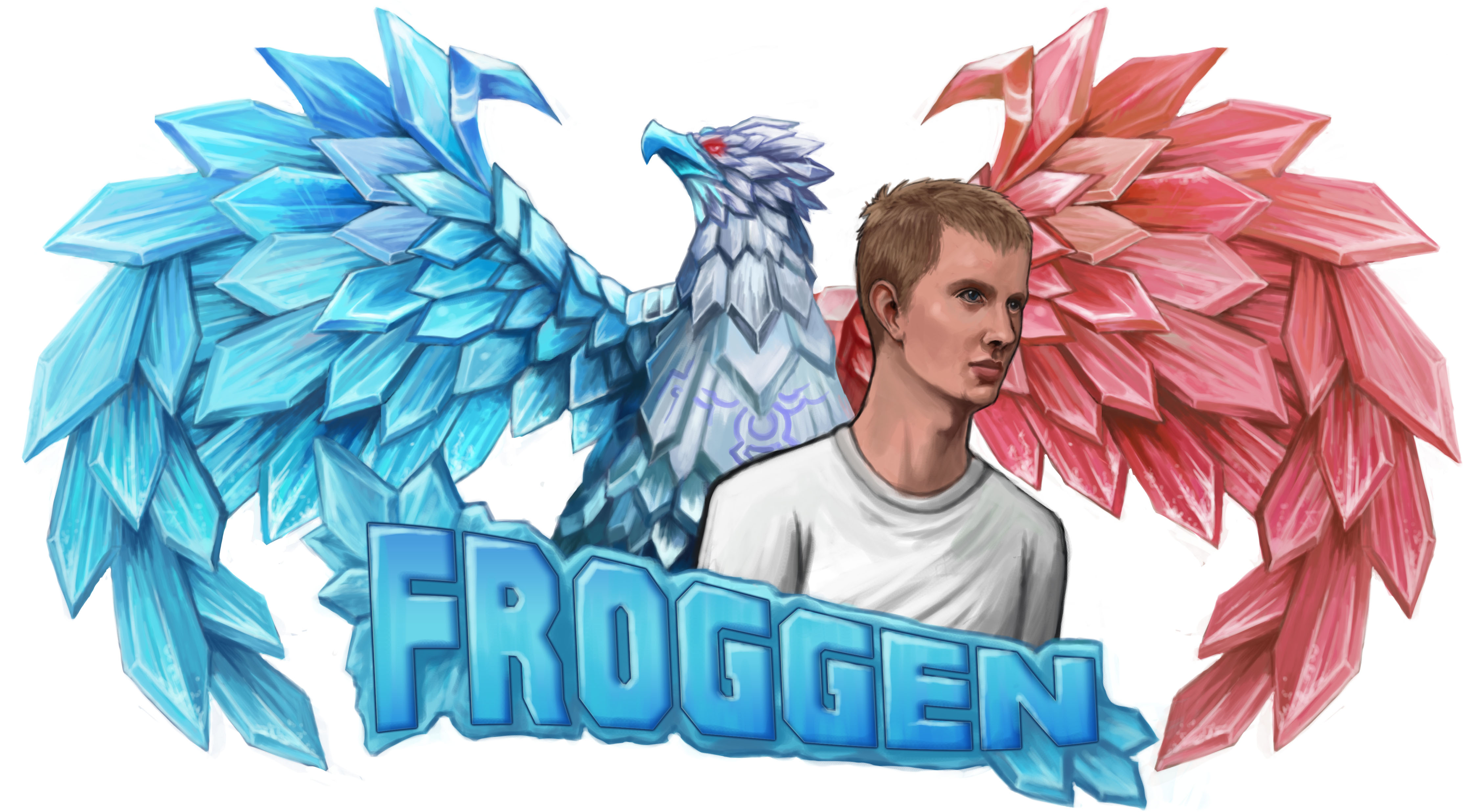
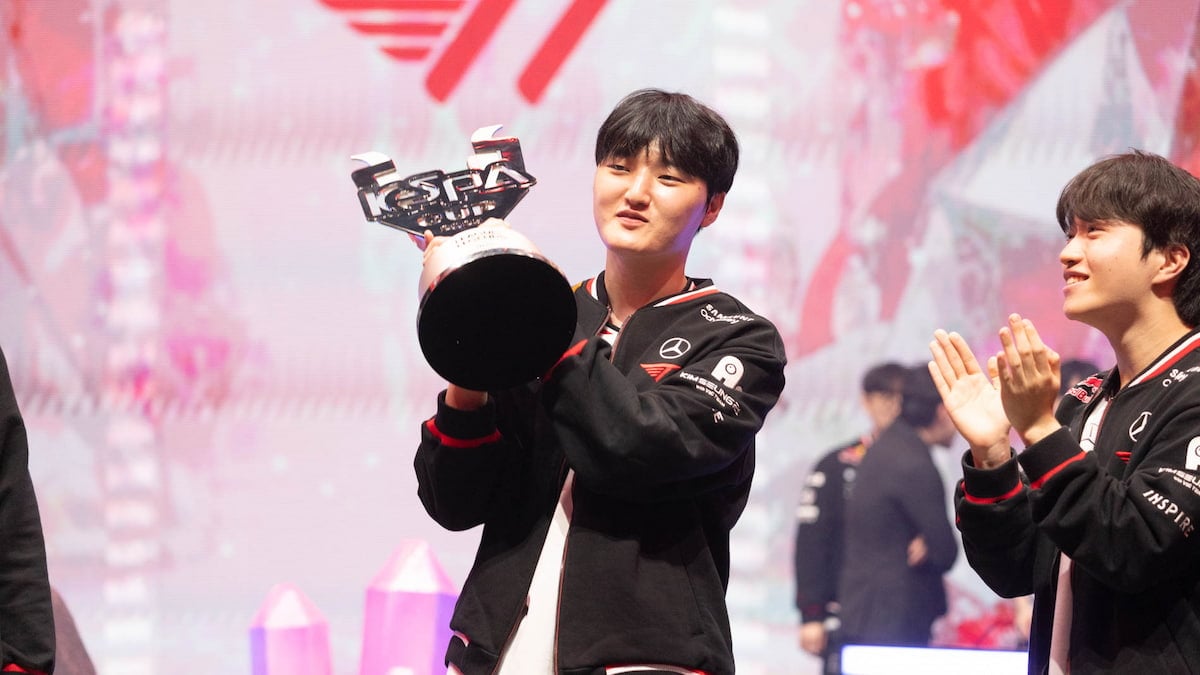
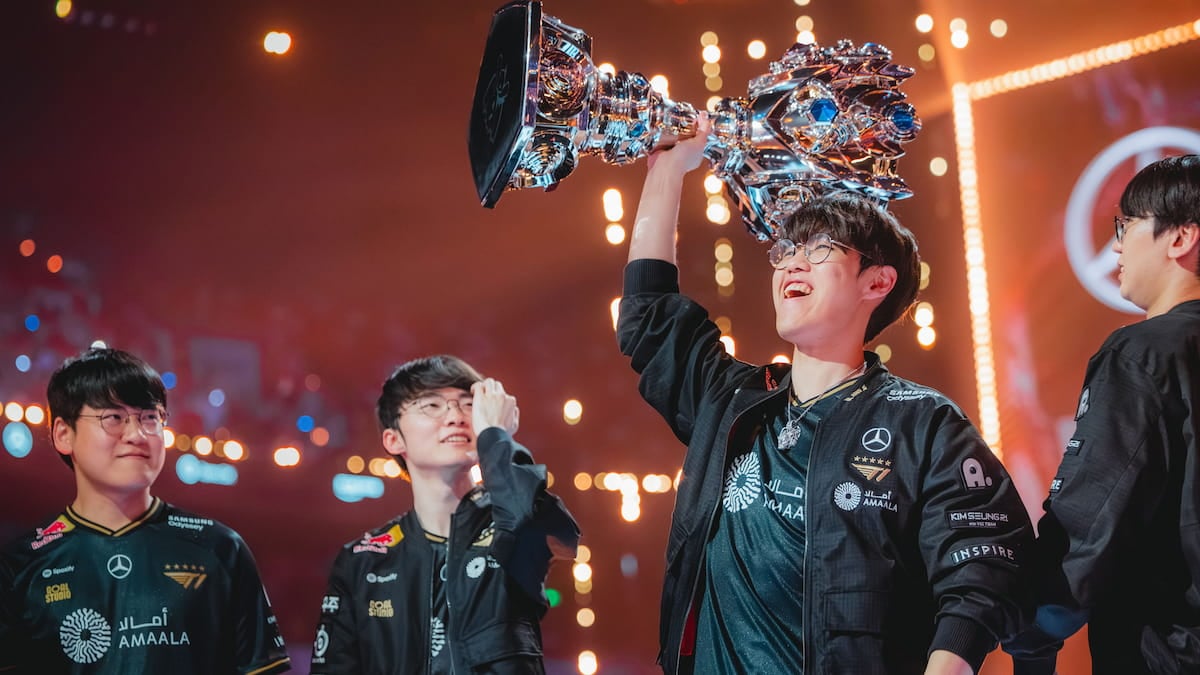
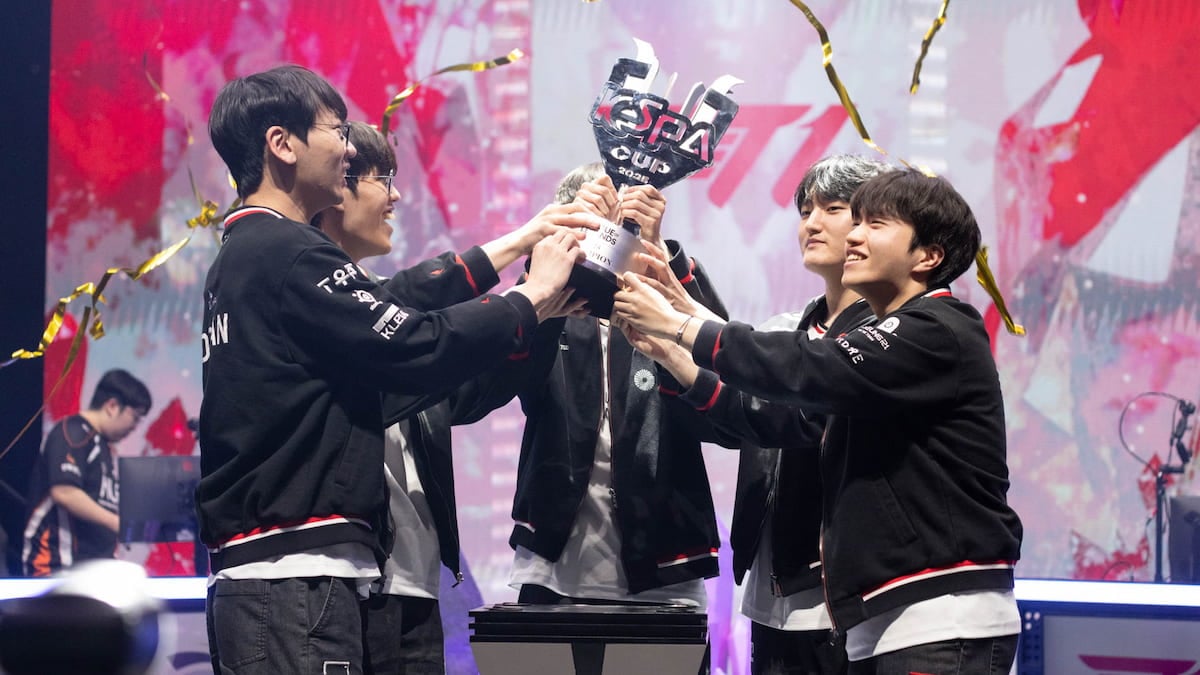
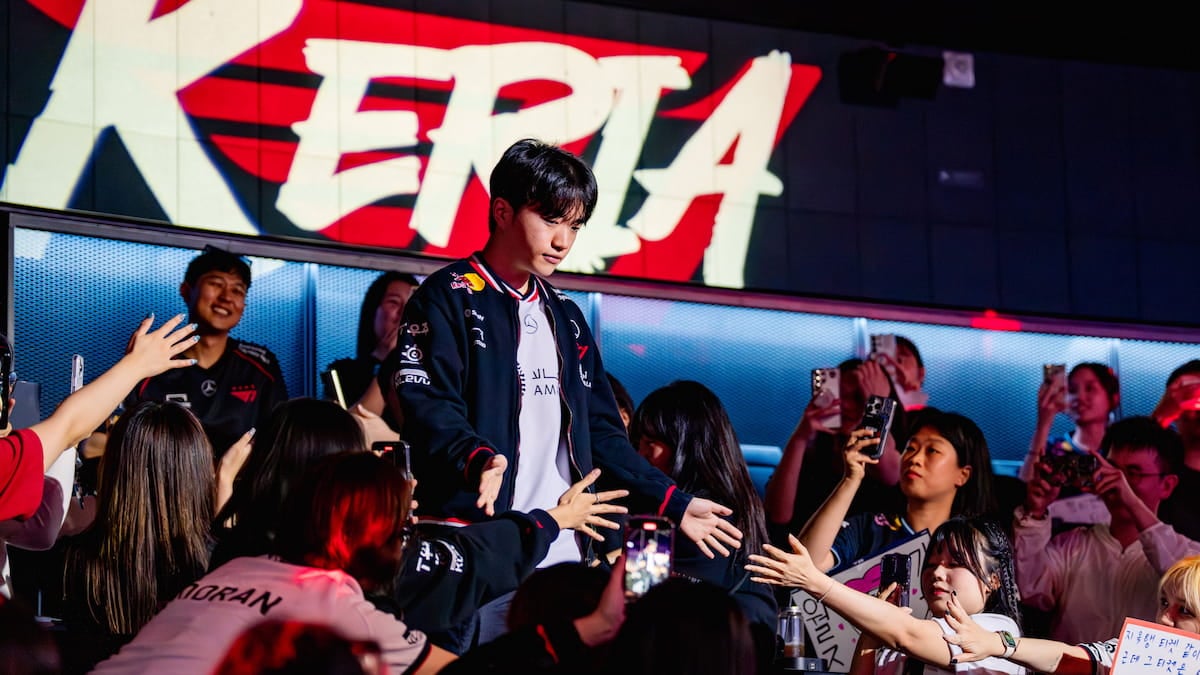
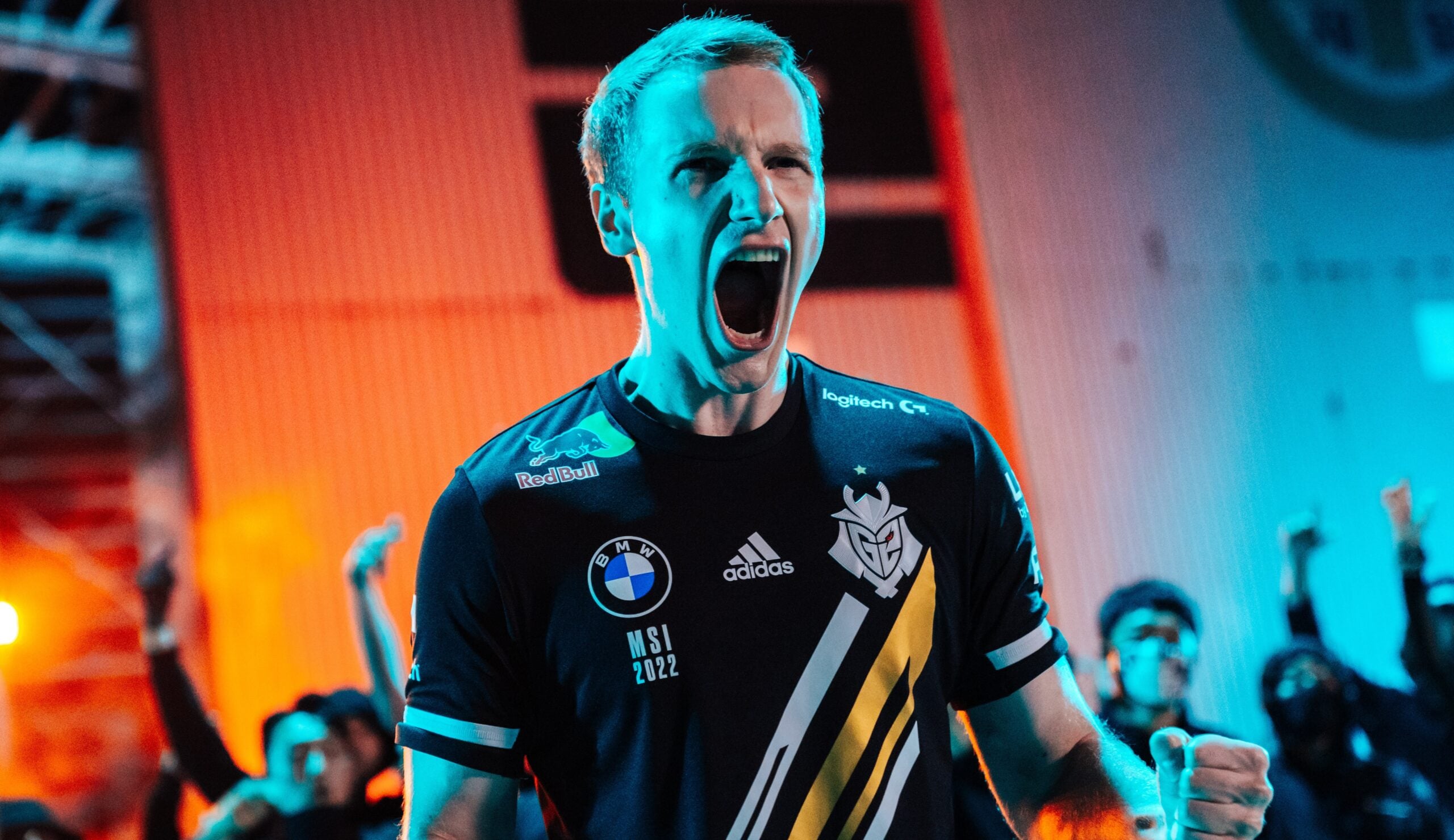
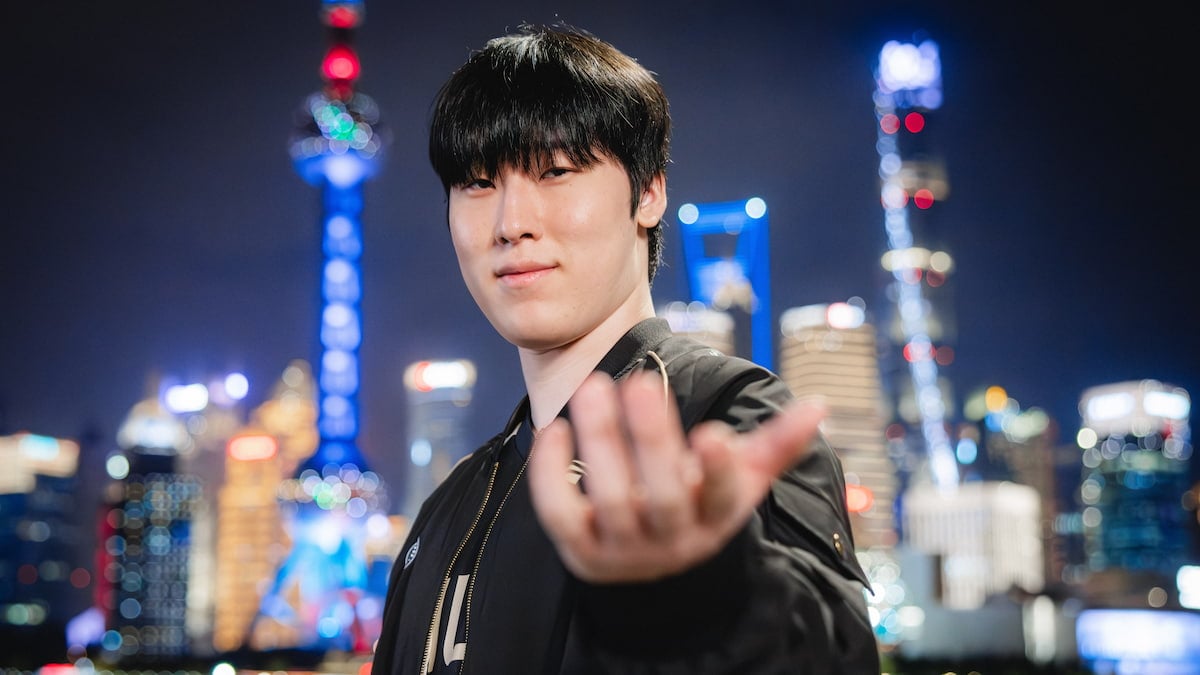
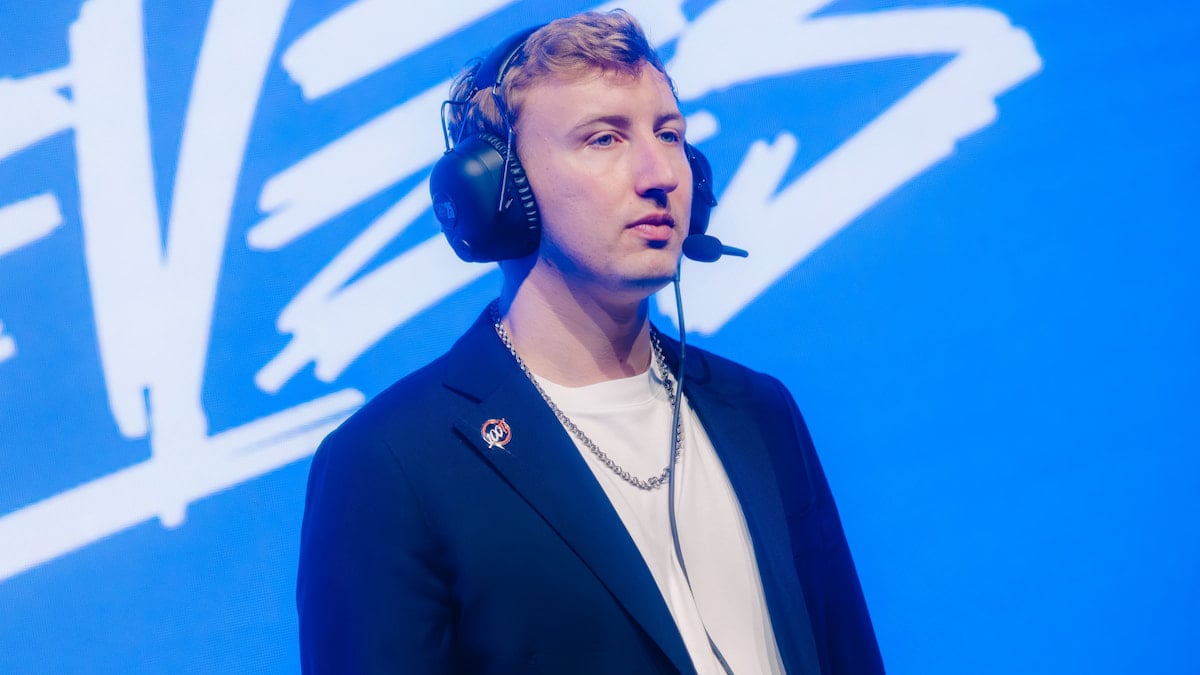
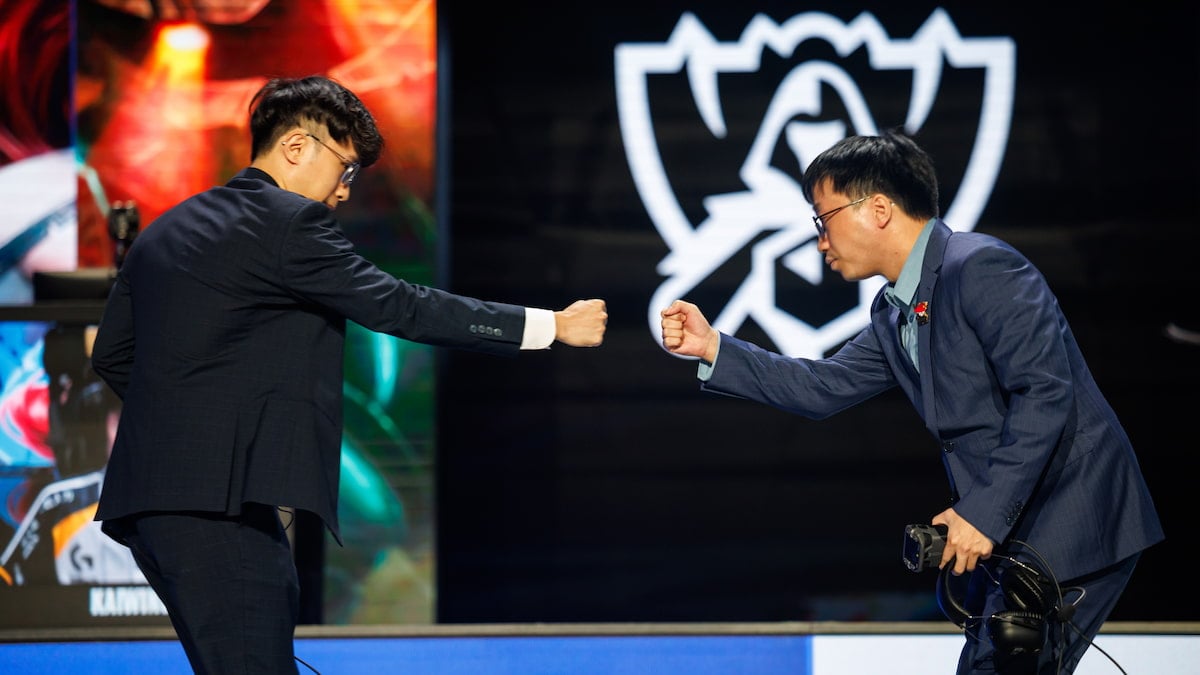
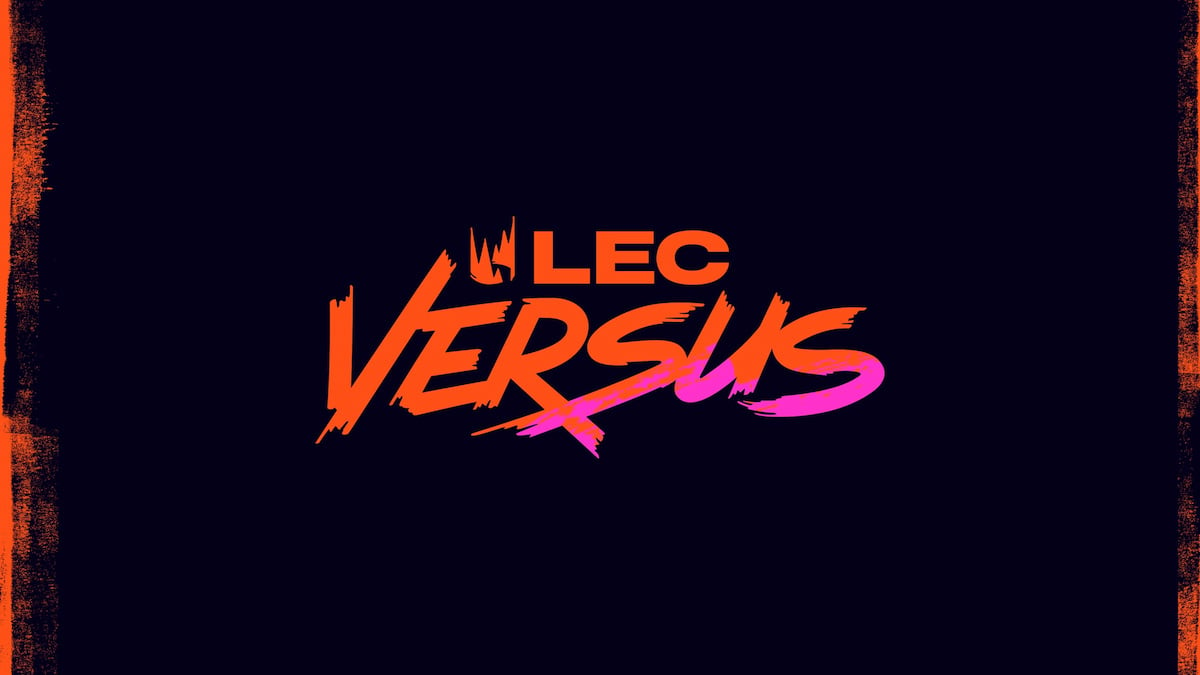
Published: Mar 7, 2016 04:13 am